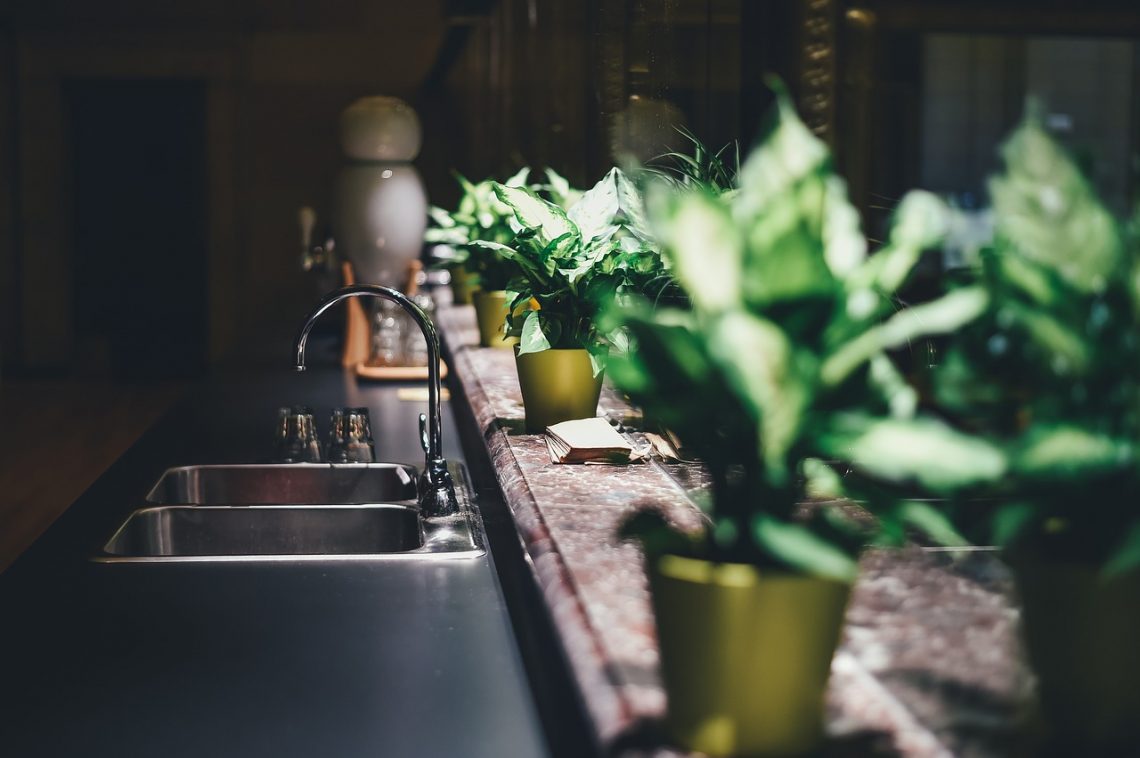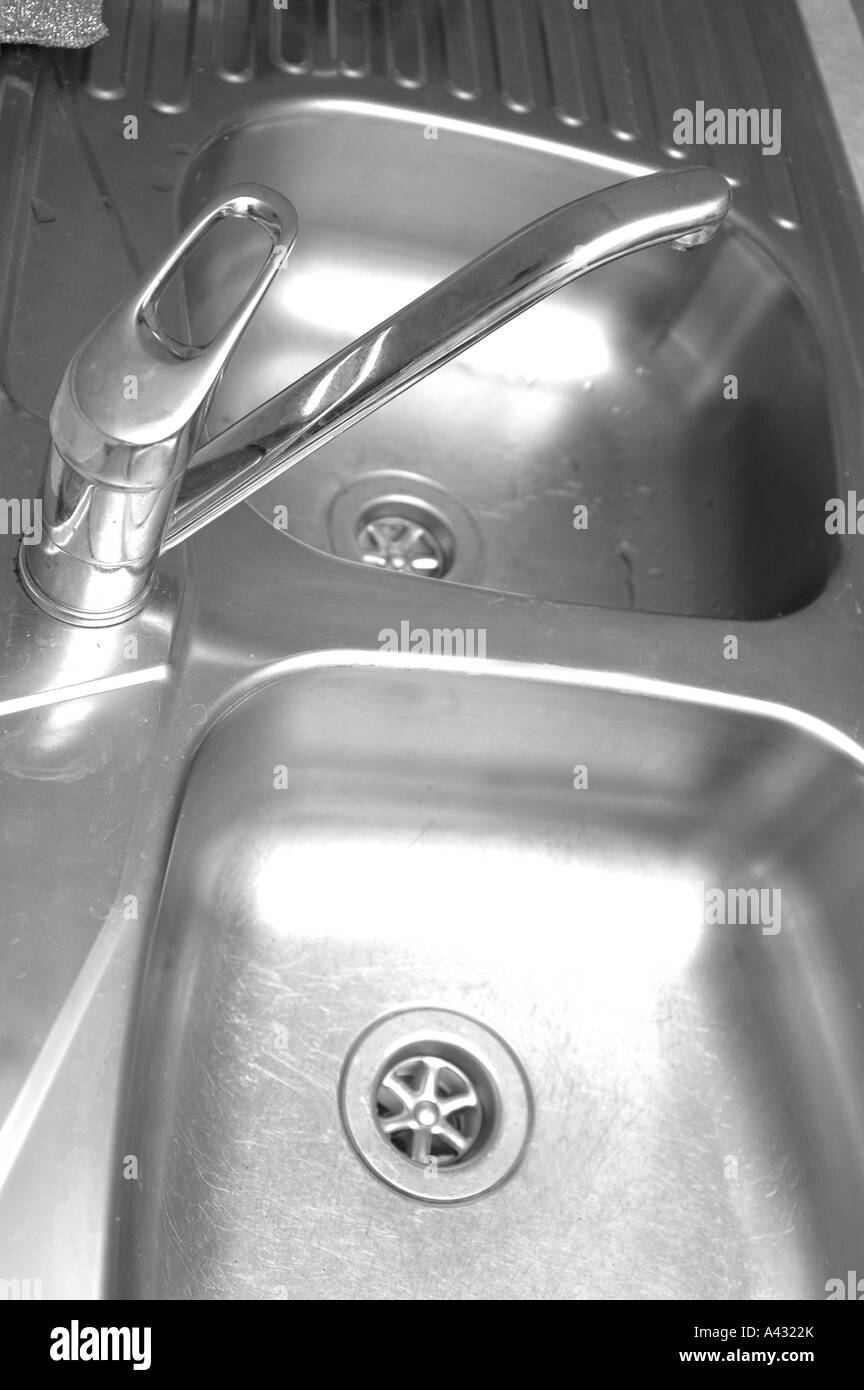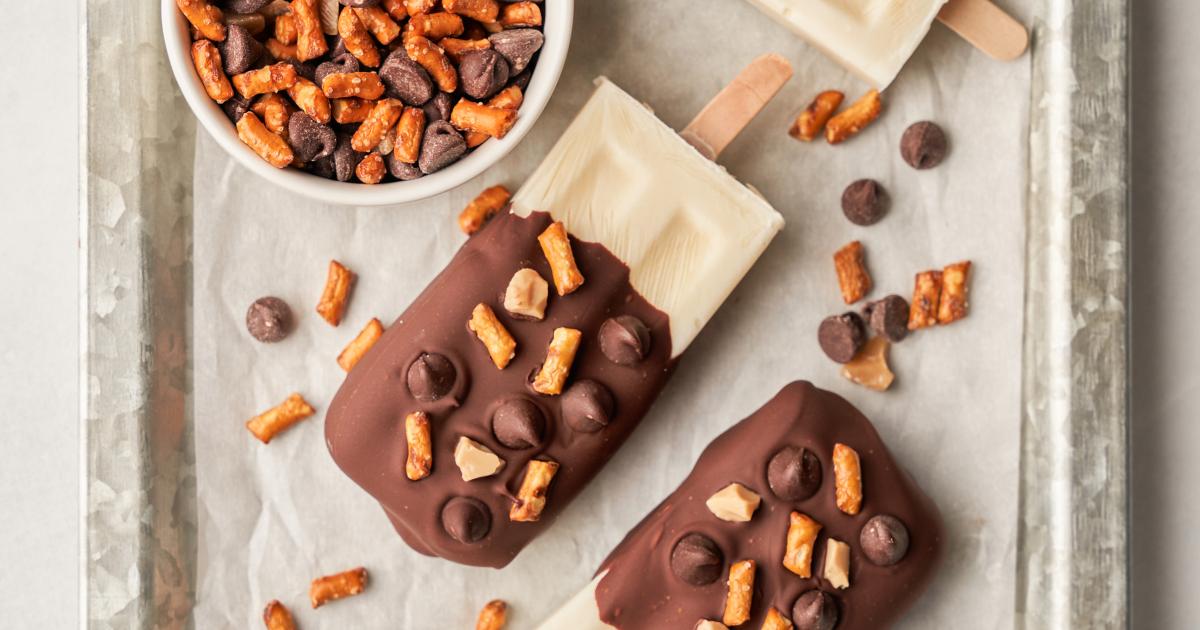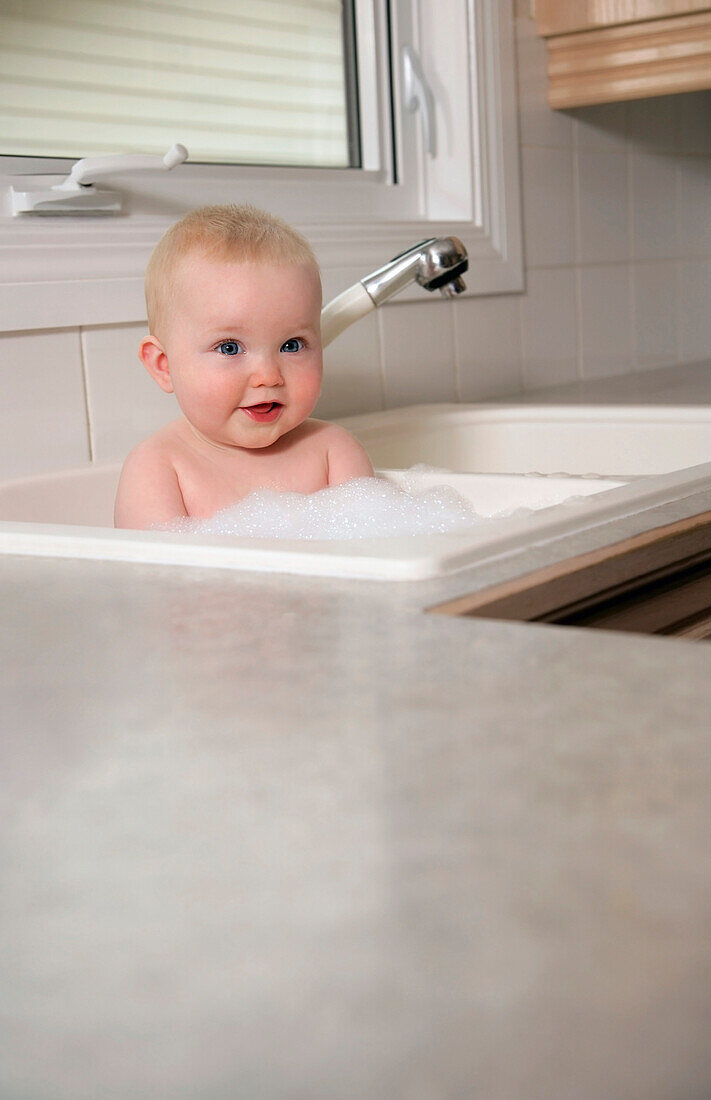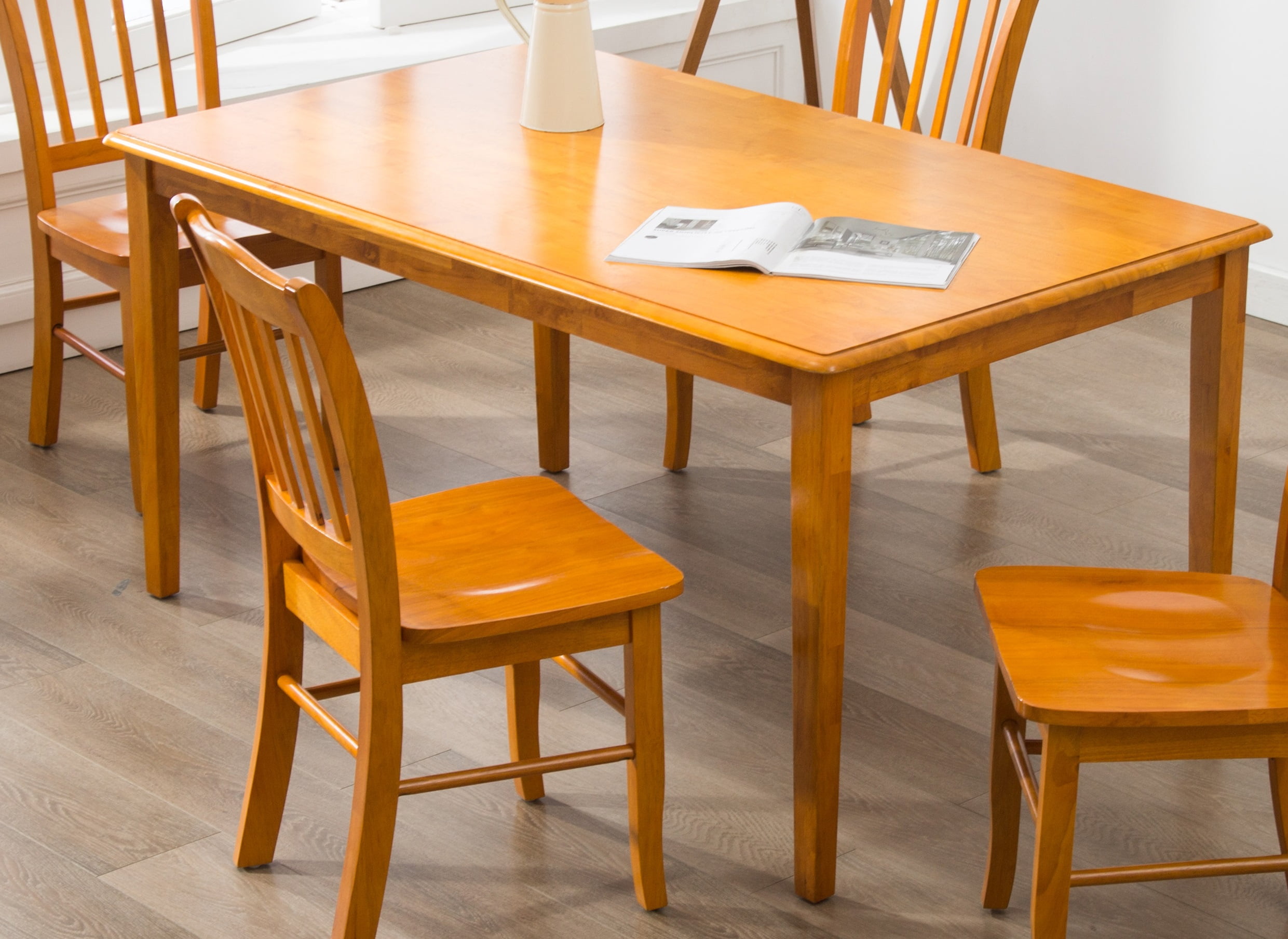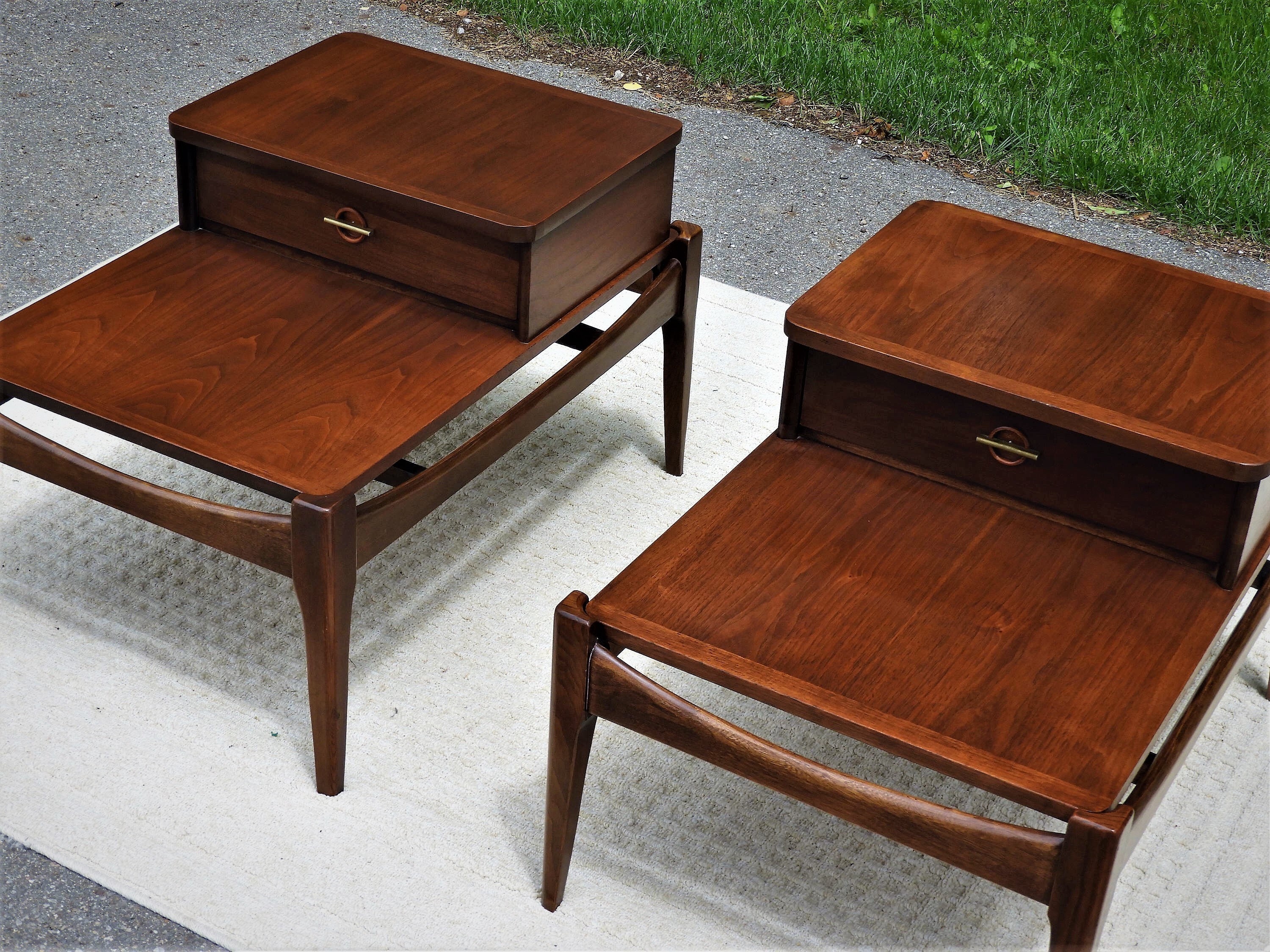If you've ever stepped into your kitchen to find your kitchen sink frozen, you know how frustrating and inconvenient it can be. Not only does it make it impossible to wash dishes or use the sink for any other purpose, but it can also lead to bigger plumbing issues if not addressed promptly. But before you call a plumber, try these 5 easy steps to defrost your kitchen sink and get it back to working condition.Defrost Your Frozen Kitchen Sink in 5 Easy Steps
The first step in defrosting your kitchen sink is to determine the cause of the freezing. In most cases, a frozen kitchen sink is a result of cold weather, particularly if your sink is located on an exterior wall. Other common causes include clogged pipes or a malfunctioning garbage disposal. Knowing the cause can help you prevent future freezing and address any underlying issues.Identifying the Cause of a Frozen Kitchen Sink
If your kitchen sink is frozen due to cold weather, the simplest solution is to use warm water to thaw it out. Start by boiling a pot of water on the stove or using hot water from your faucet. Then, pour the warm water down the drain and wait a few minutes. The heat from the water should melt the ice and allow it to drain out. Repeat as needed until the sink is completely thawed.Thawing Out Your Kitchen Sink with Warm Water
If the warm water method doesn't work or if you don't have access to hot water, a hair dryer can also be used to defrost your kitchen sink. Set the hair dryer to a low heat setting and aim it at the frozen area of the sink. Move the dryer back and forth to evenly distribute the heat and slowly melt the ice. Be sure to keep the dryer a safe distance away from any water to avoid electrical shock.Using a Hair Dryer to Defrost Your Kitchen Sink
To prevent your kitchen sink from freezing again, there are a few simple steps you can take. Insulating your pipes with foam or heat tape can help keep them from freezing in cold weather. Running a small trickle of warm water through the sink can also help prevent freezing. And if you suspect a clog is causing the freezing, regularly cleaning and maintaining your pipes can prevent future issues.Preventing Frozen Kitchen Sinks in the Future
If your kitchen sink continues to freeze despite your best efforts, it may be time to call in a professional plumber. They can assess the situation and determine if there are any underlying issues causing the freezing. They can also provide solutions for preventing future freezing and ensure your plumbing system is functioning properly.Calling a Professional Plumber for Persistent Freezing
If your kitchen sink is frozen and you need to use it urgently, there are a few temporary solutions you can try. Placing a heating pad or hot water bottle on the frozen area can help melt the ice. You can also use a mixture of hot water and salt to melt the ice, but be sure to only use salt that is safe for plumbing systems.Dealing with a Frozen Kitchen Sink in an Emergency
Regular maintenance and care can go a long way in preventing a frozen kitchen sink. Avoid pouring grease or oil down the drain, as it can solidify and cause clogs. Use a drain cover to catch any food scraps and regularly clean your garbage disposal to prevent buildup. Taking these simple steps can help keep your kitchen sink running smoothly.Keeping Your Kitchen Sink Running Smoothly
If you prefer to use natural remedies, there are a few options for thawing a frozen kitchen sink. Pouring a mixture of vinegar and hot water down the drain can help break up any ice. You can also use a mixture of baking soda and hot water or a combination of salt, baking soda, and hot water to melt the ice. These natural remedies are safe for your plumbing system and can be effective in thawing a frozen sink.Thawing a Frozen Kitchen Sink with Natural Remedies
A frozen kitchen sink can be a major inconvenience, but with these tips, you can easily defrost and prevent future freezing. Remember to identify the cause, use warm water or a hair dryer to thaw the sink, and take preventative measures to keep your kitchen sink running smoothly. And if you encounter persistent freezing, don't hesitate to call a professional plumber for assistance.Final Thoughts
Why Only the Kitchen Sink is Frozen: The Importance of Proper House Design
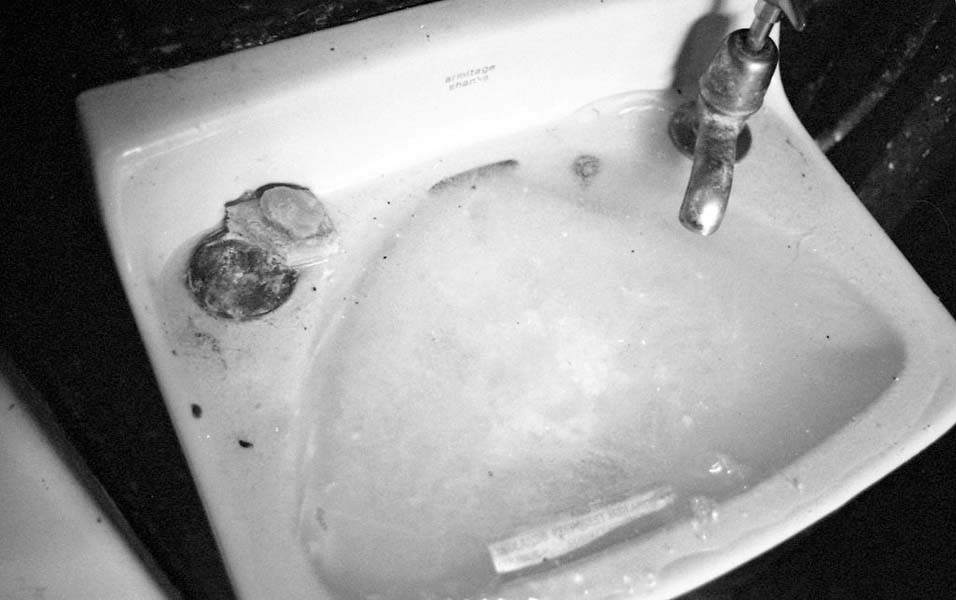
The Importance of House Design
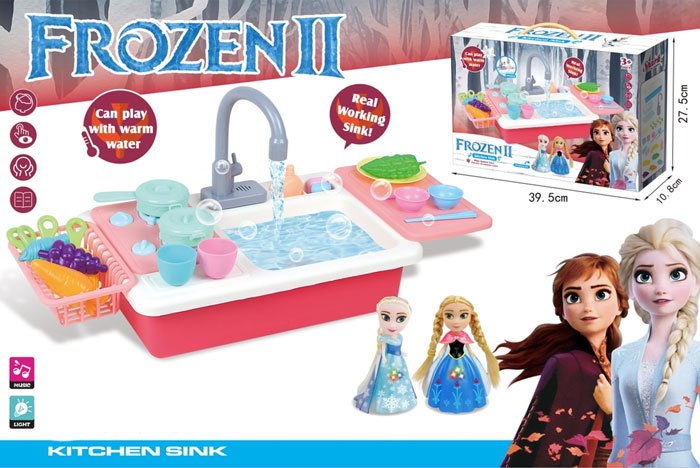 When it comes to designing a house, every little detail matters. From the layout to the materials used, every decision can greatly affect the functionality and overall feel of a home. One of the most crucial aspects of house design is the plumbing system, particularly in the kitchen. This is where the concept of "only the kitchen sink frozen" becomes relevant.
When it comes to designing a house, every little detail matters. From the layout to the materials used, every decision can greatly affect the functionality and overall feel of a home. One of the most crucial aspects of house design is the plumbing system, particularly in the kitchen. This is where the concept of "only the kitchen sink frozen" becomes relevant.
The Role of the Kitchen Sink
 The kitchen sink is more than just a place to wash dishes and prepare food. It also serves as a crucial part of the plumbing system, allowing water to flow in and out of the house. However, if the design of the house is not well-thought-out, this important fixture can easily become prone to freezing during the colder months.
Proper Insulation is Key
During winter, the temperature drops significantly, and this can cause the water in the pipes to freeze. This becomes a problem when the pipes are not properly insulated, especially in areas where the temperature can reach below freezing point. When the pipes freeze, water flow is restricted, and this can lead to the kitchen sink being the only source of running water in the house.
The Role of Proper House Design
Proper house design takes into consideration the climate and temperature of the area. This includes choosing the right materials and ensuring proper insulation throughout the house, including the plumbing system. A well-insulated house will prevent pipes from freezing, ensuring that all fixtures, including the kitchen sink, continue to function properly during the colder months.
The kitchen sink is more than just a place to wash dishes and prepare food. It also serves as a crucial part of the plumbing system, allowing water to flow in and out of the house. However, if the design of the house is not well-thought-out, this important fixture can easily become prone to freezing during the colder months.
Proper Insulation is Key
During winter, the temperature drops significantly, and this can cause the water in the pipes to freeze. This becomes a problem when the pipes are not properly insulated, especially in areas where the temperature can reach below freezing point. When the pipes freeze, water flow is restricted, and this can lead to the kitchen sink being the only source of running water in the house.
The Role of Proper House Design
Proper house design takes into consideration the climate and temperature of the area. This includes choosing the right materials and ensuring proper insulation throughout the house, including the plumbing system. A well-insulated house will prevent pipes from freezing, ensuring that all fixtures, including the kitchen sink, continue to function properly during the colder months.
Other Factors to Consider
 Aside from insulation, there are other factors that can contribute to pipes freezing in the kitchen sink. These include inadequate ventilation, poor drainage, and even the placement of the pipes. All of these aspects must be carefully thought out during the design process to prevent any potential issues in the future.
In Conclusion
In order to avoid the inconvenience and potential damage caused by a frozen kitchen sink, it is crucial to consider all aspects of house design, including the plumbing system. With proper insulation and thoughtful design, the kitchen sink will not be the only source of running water during the winter months. So remember, when it comes to house design, every detail matters.
Aside from insulation, there are other factors that can contribute to pipes freezing in the kitchen sink. These include inadequate ventilation, poor drainage, and even the placement of the pipes. All of these aspects must be carefully thought out during the design process to prevent any potential issues in the future.
In Conclusion
In order to avoid the inconvenience and potential damage caused by a frozen kitchen sink, it is crucial to consider all aspects of house design, including the plumbing system. With proper insulation and thoughtful design, the kitchen sink will not be the only source of running water during the winter months. So remember, when it comes to house design, every detail matters.







